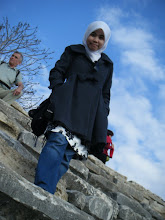Breast cancer is a cancer that starts in the tissues of the breast. There are two main types of breast cancer:
Ductal carcinoma starts in the tubes (ducts) that move milk from the breast to the nipple. Most breast cancers are of this type.
Lobular carcinoma starts in the parts of the breast, called lobules, that produce milk.
In rare cases, breast cancer can start in other areas of the breast.
Breast cancer may be invasive or noninvasive. Invasive means it has spread from the milk duct or lobule to other tissues in the breast. Noninvasive means it has not yet invaded other breast tissue. Noninvasive breast cancer is called "in situ."
Ductal carcinoma in situ (DCIS), or intraductal carcinoma, is breast cancer in the lining of the milk ducts that has not yet invaded nearby tissues. It may progress to invasive cancer if untreated.
Lobular carcinoma in situ (LCIS) is a marker for an increased risk of invasive cancer in the same or both breasts.
Many breast cancers are sensitive to the hormone estrogen. This means that estrogen causes the breast cancer tumor to grow. Such cancers have estrogen receptors on the surface of their cells. They are called estrogen receptor-positive cancer or ER-positive cancer.
Over the course of a lifetime, 1 in 8 women will be diagnosed with breast cancer.
Risk factors you cannot change include:
Age and gender - Your risk of developing breast cancer increases as you get older. Most advanced breast cancer cases are found in women over age 50. Women are 100 times more likely to get breast cancer than men.
Family history of breast cancer -You may also have a higher risk for breast cancer if you have a close relative who has had breast, uterine, ovarian, or colon cancer. About 20 - 30% of women with breast cancer have a family history of the disease.
Genes -Some people have genes that make them more likely to develop breast cancer. The most common gene defects are found in the BRCA1 and BRCA2 genes. These genes normally produce proteins that protect you from cancer. If a parent passes you a defective gene, you have an increased risk for breast cancer. Women with one of these defects have up to an 80% chance of getting breast cancer sometime during their life.
Menstrual cycle - Women who got their periods early (before age 12) or went through menopause late (after age 55) have an increased risk for breast cancer.
Other risk factors include:
Alcohol use -Drinking more than 1 - 2 glasses of alcohol a day may increase your risk for breast cancer.
Childbirth - Women who have never had children or who had them only after age 30 have an increased risk for breast cancer. Being pregnant more than once or becoming pregnant at an early age reduces your risk of breast cancer.
DES - Women who took diethylstilbestrol (DES) to prevent miscarriage may have an increased risk of breast cancer after age 40. This drug was given to the women in the 1940s - 1960s.
- Hormone replacement therapy (HRT) - You have a higher risk for breast cancer if you have received hormone replacement therapy with estrogen for several years or more.
- Obesity -Obesity has been linked to breast cancer, although this link is controversial. The theory is that obese women produce more estrogen, which can fuel the development of breast cancer.
- Radiation - If you received radiation therapy as a child or young adult to treat cancer of the chest area, you have a much higher risk for developing breast cancer. The younger you started such radiation and the higher the dose, the higher your risk -especially if the radiation was given during breast development.
Early breast cancer usually does not cause symptoms. This is why regular breast exams are important. As the cancer grows, symptoms may include:
Breast lump or lump in the armpit that is hard, has uneven edges, and usually does not hurt
Change in the size, shape, or feel of the breast or nipple -- for example, you may have redness, dimpling, or puckering that looks like the skin of an orange
Fluid coming from the nipple -- may be bloody, clear to yellow, green, and look like pus
Men can get breast cancer, too. Symptoms include breast lump and breast pain and tenderness.
Symptoms of advanced breast cancer may include:
Bone pain
Breast pain or discomfort
Skin ulcers
Swelling of one arm (next to the breast with cancer)
- Weight loss
Sedikit sebanyak ulangkaji (sikit sungguh). InsyaAllah kena membaca lagi ni,exam pun dah parking kat lot corner sekarang. Harus bersedia lebih awal supaya kurang gementar dan kurang serangan jangkitan homesiccoccus. Sekarang harus membaca tentang RNA extraction untuk esok. Berusaha!
All the best adik-adik dan rakan-rakan! Bitaufiq wannajah. Just a little push. :)
nota metatarsal : hari ni birthday Abah dan Akif. Allah, pelihara mereka dan rahmati mereka ya rabbi kerana kasihMu melebihi kasihku. Dengar cerita berKFC di rumah. Homesicoccus dah mula menyucuk-nyucuk ni.


